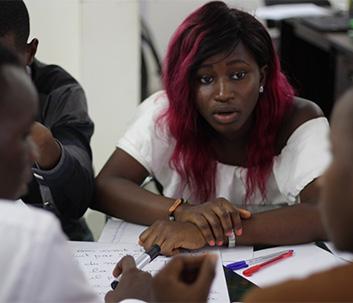
As part of the project called ‘Unis dans nos différences’ (United in our differences), implemented by Search for Common Ground (SFCG) and financed by the European Union under the Instrument contributing to Stability and Peace (IcSP), managed by Service for Foreign Policy Instruments (FPI), the young people in Guinea received the chance to become better leaders and promote tolerance and a spirit of togetherness in their community in the so-called ‘peace clubs’.
Since 2019, 40 ‘peace clubs’ have been set up throughout the country covering major towns like Ratoma, Matoto, Labé, Pita, Siguiri, Kankan, N'Zérékoré and Beyla. The clubs became a place where young people from different religious, political and community backgrounds can develop their communication and leadership skills and learn how to handle conflicts and rumours, while creating strong bonds of trust between them. This helps them to withstand calls to violence and hatred.
By using debating techniques, creating short films and through theatre they talk about the challenges they face in their communities, tolerance and living peacefully together - be it between or within religious groups, or between political or community.
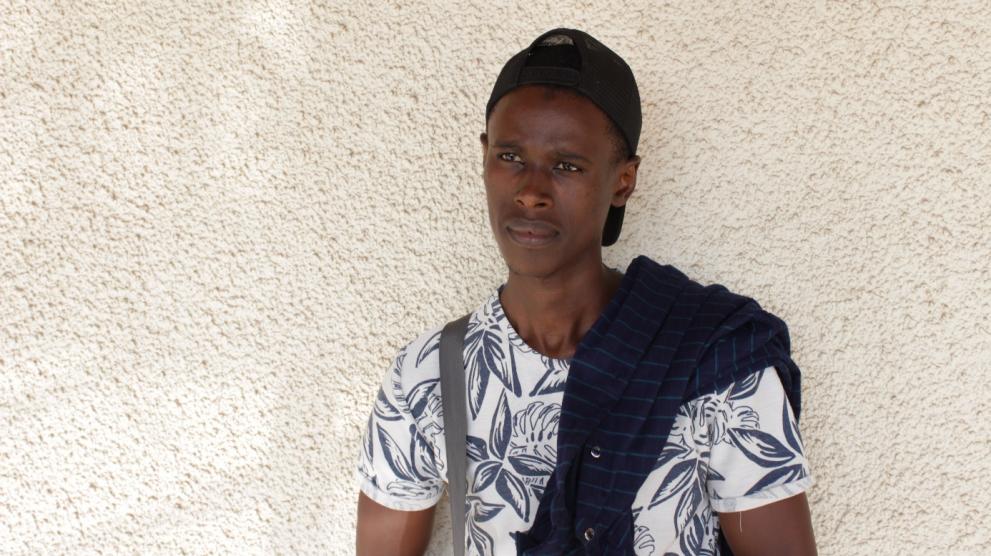
Photo: Barry Ousmane
“Now I can create films so I can get my message out there. I can tell people to love one another, help each other and forgive each other. That’s a problem we have in Guinea, loving one another... people don’t forgive each other. But if everyone comes together, Guinea will be alright.” says Barry Ousmane, a member of the students’ peace club in Ratoma.
The local and regional peace festivals that are organised periodically by peace clubs became a place where young people could meet up and show their short films, perform in short plays and dance. Nevertheless, most importantly, they get the chance to discuss the sensitive issues, such as inter-religious marriages or respect for other people’s political views.
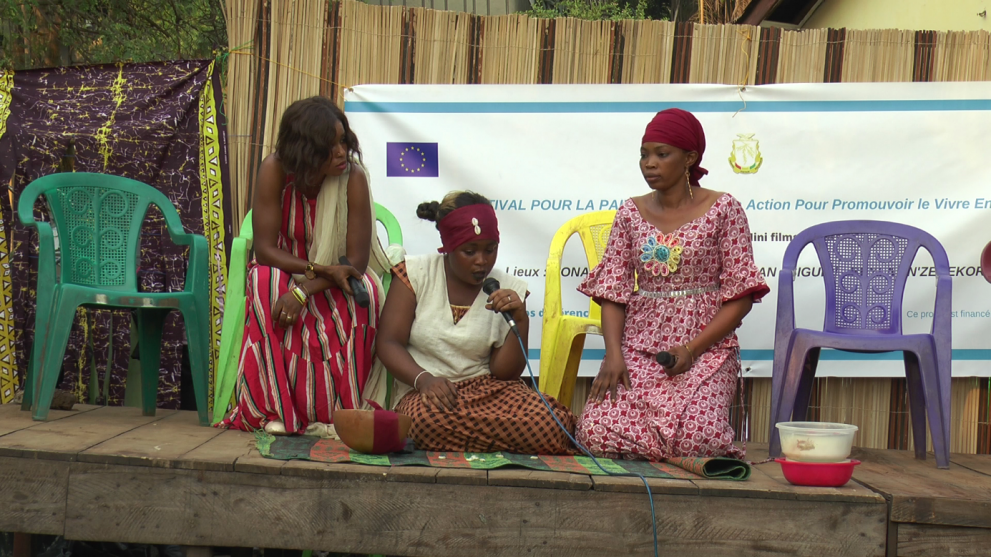
Photo: Young women performing in a play at the peace festival
In many cases, young women and girls are in the spotlight of peace festivals, giving them the possibility to speak in front of an audience, to debate sensitive topics or act in a play. Only a few months earlier, they had nowhere they could express themselves.
“I didn’t think I could go up on stage, but the training and rehearsals really gave me the courage to do it. I studied with trainers making short films, with the members of my peace club and with my coaches. Using what I’ve learnt, I will make short films and help raise awareness using pictures on my social media accounts.”, shares Oumou Koultoumy Bah,a member of the school-based peace club in Ratoma.
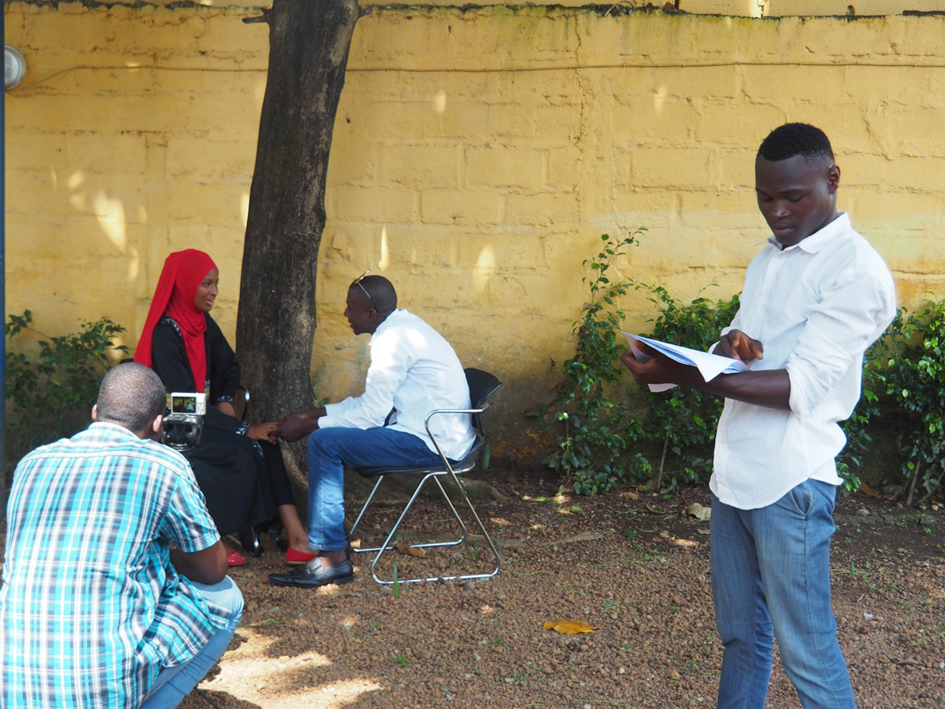
Photo: In the peace clubs, young people learn how to make short films
The local authorities are also happy with the peace festivals since they provide a model that can be replicated to help building peace and encouraging young people to take an active role in their community.
The Mayor of the rural municipality of Doko Djemory Djékoria Diabatéunderlined: ‘The Peace Festival is a learning ground for local authorities like us. If we make full use of this tool in our different local areas, we will be able to solve many problems relating to conflicts of all kinds - religious and community-based - allowing us to strengthen cohesion between different bodies and faith groups.’
The festivals also helped develop young people’s critical thinking, their ability to put together an argument and to listen to and debate an opinion that is different from their own. All of which are qualities needed by Guinea’s leaders and peacemakers of the future.
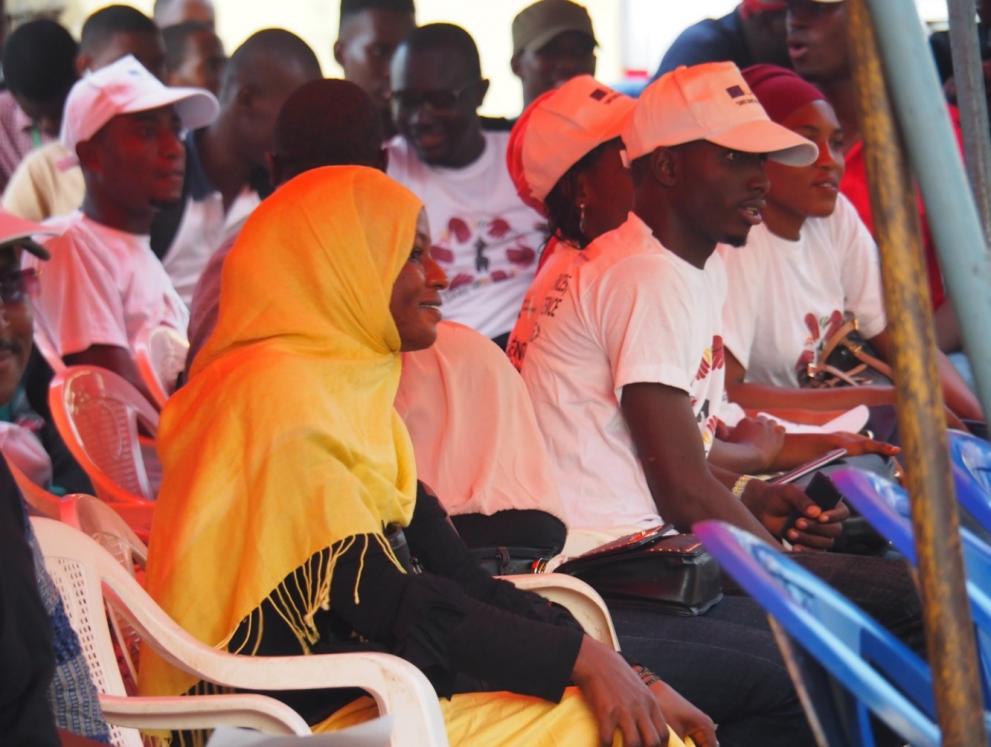
Photo: Enthralled members of the audience at the Conakry Regional Peace Festival, December 2019
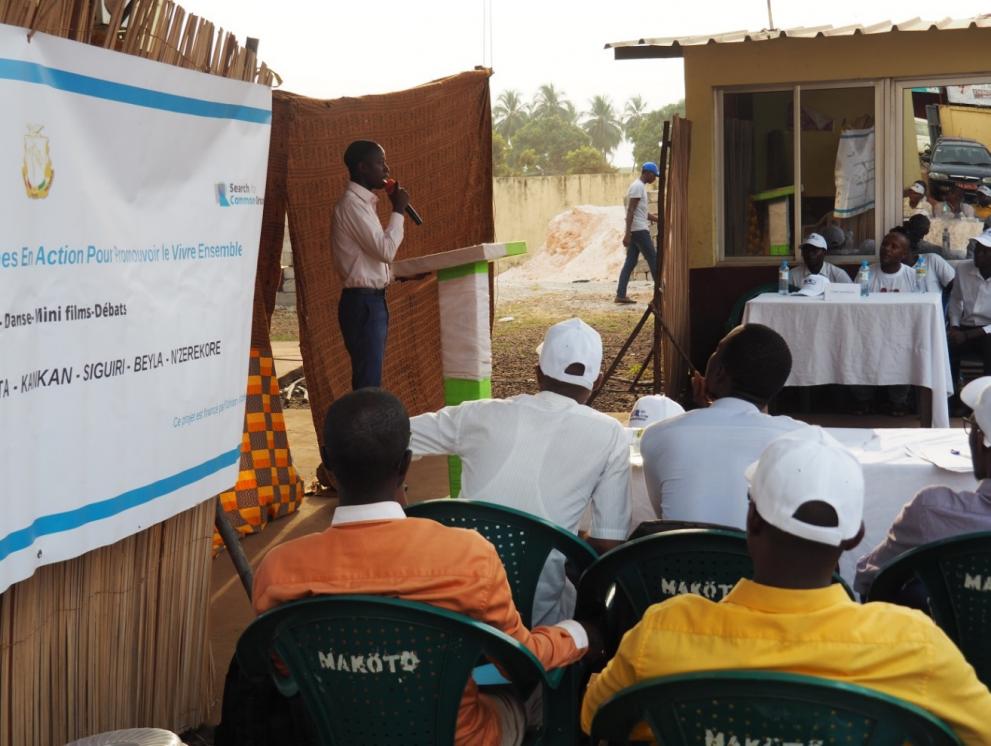
Photo: Young people debating for peace, Conakry Regional Peace Festival, December 2019

Photo: Young people debating for peace, Conakry Regional Peace Festival, December 2019
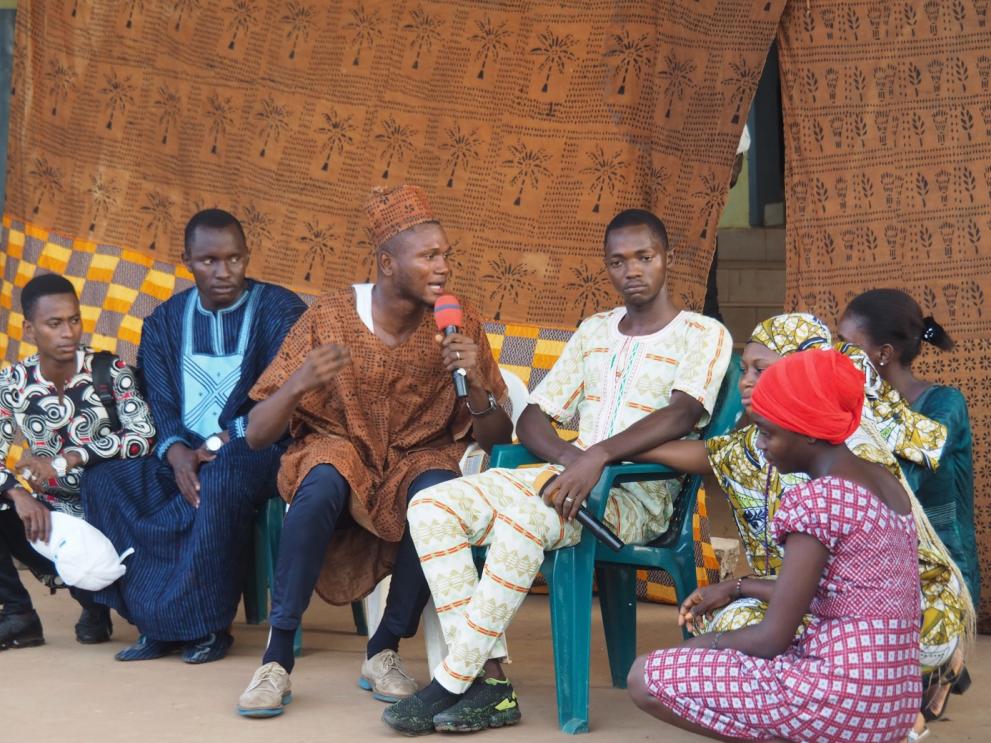
Photo: A play about living together despite our differences, Conakry Regional Peace Festival, December 2019
For more information:
